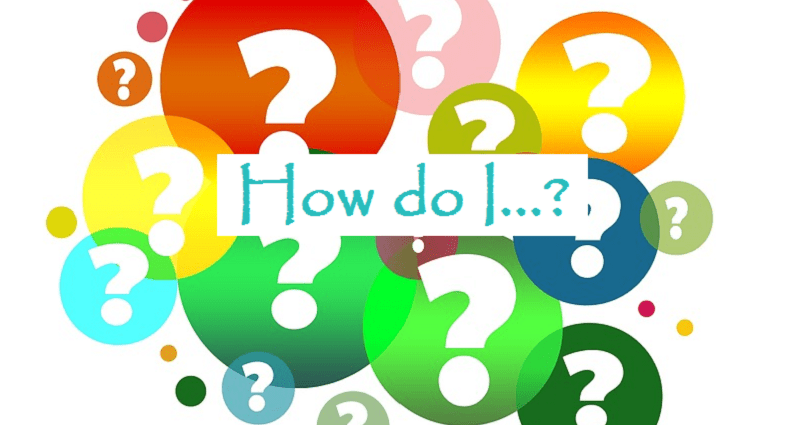What is the norm and where is the border beyond which someone becomes “abnormal”? Why do people tend to stigmatize themselves and others? Psychoanalyst Hilary Handel on normality, toxic shame and self-acceptance.
Morticia Addams from the series about the infernal family said: “The norm is an illusion. What is normal for a spider is chaos for a fly.”
Almost every one of us at least once in his life asked himself the question: “Am I normal?” A therapist or psychiatrist may respond by asking what reason or life situation makes us doubt ourselves. A lot of people, due to parental or pedagogical mistakes and childhood traumas, live for many years with a worm of doubt that the rest are in order, but they are not …
Where is it, this norm, and how to stop suspecting yourself of abnormality? Psychoanalyst Hilary Handel shares a client’s story.
Alex, a 24-year-old programmer, asked an unexpected question in a regular session. He had been coming to psychotherapy for several months, but this was the first time he had asked about this.
– Am I normal?
Why are you asking this right now? Hilary stated. Prior to that, they had discussed Alex’s new relationship and how he felt good about becoming more serious.
“Well, I’m just wondering if it’s normal to feel so anxious.
– What is “normal”? Hilary asked.
What is “normal”?
According to dictionaries, it means “corresponding to the standard, ordinary, typical, average or expected, and without deviation.”
But how to apply this term in relation to all mankind? Most of us try to live up to the standard socially by expressing our true selves more freely. Everyone has their own quirks and specific preferences, we are endlessly complex and highly imperfect unique creations. Our billions of nerve cells are programmed by genetics and life experience.
Yet we sometimes question our own normality. Why? This is due to the inherent fear of rejection and disconnection, explains Dr. Handel. Thinking about this, we are actually asking ourselves questions: “Will I suit them?”, “Can I be loved?”, “Do I need to hide my features in order to be accepted?”.
Dr. Handel suspected that the client’s sudden question was related to his new relationship. The thing is, love makes us vulnerable to rejection. Naturally, we become more sensitive and alert, fearing to reveal one or another of our traits.
Anxiety is part of being human. It’s frustrating, but we can learn to calm down
Do you blame yourself for being anxious? Hilary asked.
– Yes.
What do you think she says about you?
– What a defect I have!
– Alex, who taught you to judge yourself for what you feel or how you suffer? Where did you learn that anxiety makes you inferior? Because it definitely isn’t!
– I think I have a defect, because as a child I was sent to a psychiatrist …
– Here it is! exclaimed Hilary.
If only young Alex had been told that anxiety is part of being human… That it’s unpleasant, but we can learn to calm down. This skill is actually very necessary and valuable in life. If only he had been told that he would be proud for mastering this skill, that he would become a real fine fellow, one step ahead of many people who have not yet learned how to calm themselves, but also really need it …
Now grown-up Alex knows that if a friend reacts to his anxiety, they can talk about it and find out what is causing her a problem. Maybe she’s just not his person, or maybe they will find a common solution. In any case, we will talk about both of them, and not just about him.
Normality and shame
For years, Alex’s anxiety was exacerbated by the shame he felt for being “defective”. Shame often arises from our thoughts that we are abnormal or different from the rest. And this is not a healthy feeling that guarantees that we will not behave inappropriately. It’s a poisonous, toxic shame that makes you feel alone.
No person deserves to be treated badly simply for who they are, unless they intentionally hurt or destroy others. Most simply want others to accept our true self and love us for it, says Dr. Handel. What if we completely let go of judgment and embraced the complexity of the human being?
Hilary Handel offers a little exercise. All you need to do is ask yourself a few questions.
Self-condemnation
- What do you think is abnormal about yourself? What are you hiding from others? Search deeply and honestly.
- What do you think will happen if someone finds out about these traits or qualities of you?
- Where did you get this belief? Is it based on past experience?
- What would you think if you knew that someone else had the same secret?
- Is there any other, more understandable way you could reveal your secret?
- What is it like asking yourself these questions?
Condemnation of others
- What do you judge in others?
- Why do you condemn it?
- If you weren’t judging others in this way, what emotions would you face? List everything that comes to mind: fear, guilt, sadness, anger, or other feelings.
- What is it like to think about it?
Perhaps the answers to these questions will help you understand how you feel about yourself or others. When we do not accept certain features of our personality, this affects our relationships with others. Therefore, sometimes it is worth questioning the voice of the inner critic and reminding ourselves that we, like everyone around us, are just people, and everyone is unique in their own way.
About the Author: Hilary Jacobs Handel is a psychoanalyst and author of Not Necessarily Depression. How the triangle of change helps you hear your body, open your emotions, and reconnect with your true self.










